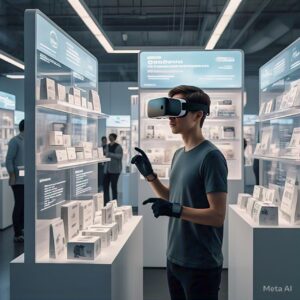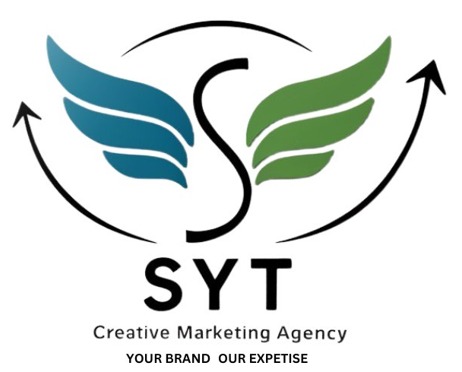Digital marketing is an ever-evolving field, and staying ahead of the trends is crucial for businesses that want to remain competitive. As we step into 2025, several game-changing trends are shaping the digital marketing landscape. If your agency isn’t already exploring these strategies, it’s time to catch up. Here’s a look at the top digital marketing trends that should be on every agency’s radar in 2025.
1. AI-Powered Marketing

Artificial Intelligence (AI) is revolutionizing digital marketing. AI tools can analyze vast amounts of data, predict customer behavior, and personalize marketing efforts like never before. Chatbots, powered by AI, are becoming more sophisticated, offering 24/7 customer support and engaging users with human-like interactions. Agencies should leverage AI for tasks such as:
- Predictive analytics to identify trends and opportunities.
- Personalized content recommendations.
- Automating repetitive tasks like email campaigns.
AI not only improves efficiency but also enhances customer experience, making it a must-have tool for digital marketers.
2. Voice Search Optimization
With the growing popularity of voice-activated devices like Amazon Alexa, Google Assistant, and Apple’s Siri, voice search is becoming a significant player in digital marketing. By 2025, more users will rely on voice commands to search for products and services. Agencies need to:
- Focus on long-tail keywords and conversational phrases.
- Optimize website content for voice search.
- Ensure local SEO strategies align with voice queries, as users often search for nearby businesses using voice commands.
3. Short-Form Video Content

Platforms like TikTok, Instagram Reels, and YouTube Shorts have proven that short-form videos are here to stay. These bite-sized, engaging videos grab attention quickly and are highly shareable. To stay relevant, agencies should:
- Create short, impactful videos tailored to specific platforms.
- Use storytelling and humor to connect with audiences.
- Incorporate user-generated content to build trust and authenticity.
4. Sustainability Marketing
Consumers in 2025 are more environmentally conscious than ever before. They prefer brands that demonstrate a commitment to sustainability and social responsibility. Agencies should help their clients:
- Highlight eco-friendly practices in marketing campaigns.
- Use transparent messaging to show genuine efforts toward sustainability.
- Partner with causes that align with their brand values to create a positive impact.
5. Influencer Marketing Evolution

Influencer marketing continues to grow, but the focus is shifting towards micro and nano influencers. These smaller creators have highly engaged audiences and are often more affordable than big-name influencers. Agencies should:
- Collaborate with influencers who align with their client’s brand and values.
- Focus on authenticity and long-term partnerships rather than one-off promotions.
- Leverage platforms like TikTok and Instagram to connect with niche audiences.
6. Privacy-First Marketing
With stricter data privacy regulations and growing consumer concerns about data security, agencies must adopt privacy-first marketing strategies. This means:
- Prioritizing transparency in how data is collected and used.
- Embracing cookieless tracking solutions to comply with privacy laws.
- Focusing on building trust with customers through ethical marketing practices.
7. Immersive Experiences with AR and VR

Augmented Reality (AR) and Virtual Reality (VR) are transforming how brands interact with their customers. From virtual try-ons for fashion and beauty products to immersive VR tours of real estate properties, these technologies offer endless possibilities. Agencies should:
- Explore creative ways to integrate AR and VR into their campaigns.
- Invest in tools that make AR and VR accessible to a broader audience.
- Use these technologies to create memorable and engaging brand experiences.
8. Content That Educates and Empowers
Educational content remains a powerful tool for building trust and authority. Consumers in 2025 are seeking informative and valuable content that solves their problems. Agencies should:
- Focus on creating high-quality blog posts, videos, and infographics.
- Use interactive content like quizzes, polls, and webinars to engage audiences.
- Tailor content to different stages of the customer journey.
9. Hyper-Personalization

Generic marketing messages no longer resonate with today’s audiences. Hyper-personalization involves using data and AI to deliver highly targeted messages based on individual preferences and behaviors. Agencies can achieve this by:
- Utilizing advanced CRM tools to segment audiences.
- Crafting personalized email campaigns and product recommendations.
- Ensuring every customer interaction feels unique and meaningful.
10. Focus on Community Building
In 2025, customers want to feel connected to the brands they support. Agencies should prioritize community building to foster brand loyalty. Strategies include:
- Creating exclusive online groups or forums for customers.
- Hosting live Q&A sessions or webinars.
- Encouraging user-generated content and rewarding loyal customers.
11. Data-Driven Decision Making
Data remains the backbone of successful digital marketing campaigns. In 2025, agencies should rely even more on real-time analytics to make informed decisions. This involves:
- Using advanced analytics tools to track campaign performance.
- Continuously testing and optimizing strategies based on data.
- Measuring ROI to ensure marketing efforts are effective.
Wrapping up
As digital marketing evolves, agencies must adapt to the latest trends to stay competitive. From embracing AI and AR to focusing on privacy-first strategies and sustainability, the opportunities in 2025 are vast. By adopting these trends and staying innovative, your agency can deliver exceptional results and help clients achieve their business goals. Start planning now to ensure you’re ready to lead in the ever-changing world of digital marketing.


